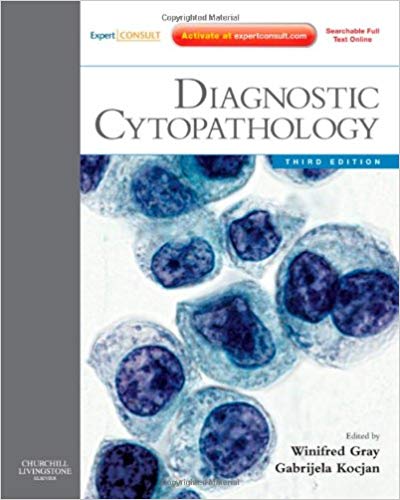
* 2011 BMA Book Awards – Highly Commended in Pathology *
The new edition of Diagnostic Cytopathology provides the practicing and trainee cytopathologist with a comprehensive guide to the diagnostic applications of exfoliative and aspiration cytology. The book covers normal and abnormal cytological findings encountered in all body sites where cytological applications are used. Appropriate histopathological, immunohistochemical and molecular correlations, together with a consideration of the possible differential diagnoses, accompany the cytological findings. The reader can see a full range of normal and abnormal findings with almost 2,000 full-colour images. The book is heavily referenced to ensure that it will serve as a practical resource for daily reference in the laboratory. A uniformity of basic chapter structure will help readers to quickly find the diagnostic answers they seek.
A practical in-depth bench book that covers everyday diagnostic work in the laboratory. It provides an accessible guide to cytological diagnostic investigation and screening. Each chapter provides a summary of major diagnostic criteria in order to quickly direct the user to the most relevant material. Cytological findings closely related to histopathological, immunohistochemical and molecular appearance whenever appropriate to assist in the interpretation and recognition of tissue samples. Almost 2,000 colour illustrations incorporated throughout to provide a comprehensive visual guide.
Stay on top of the latest concepts and developments in molecular markers.
Access full text online and download images via Expert Consult.
This edition stresses not just the diagnostic cytological features of the various conditions encountered, but also the diagnostic pitfalls and the grey areas between so as to enable the reader to give more evidence-based reports. In recognition of their rapid expansion, there are new chapters on recent technological developments and on the cytodiagnosis of childhood tumours. A special section on the importance of multidisciplinary team meetings that include the cytopathologist as a core member of the team has also been included at the end of each chapter. As active members of this team, cytopathologists can define their role in the management pathway and thus bring the patient and the microscope together as never before. The full text can be accessed online and images downloaded via Expert Consult.

